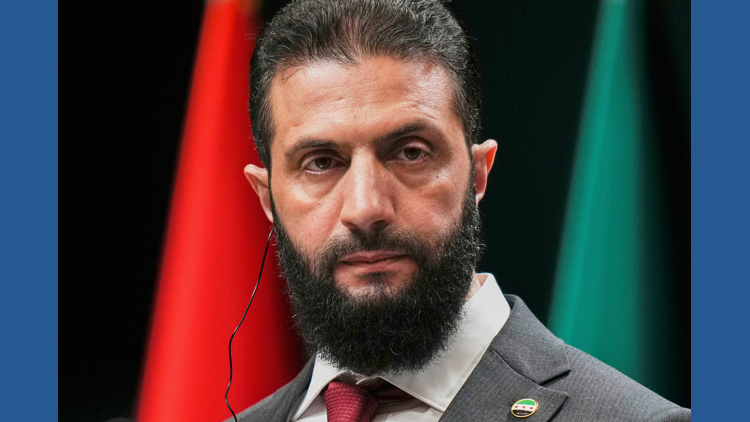President Donald Trump welcomed Syrian President Ahmad al-Sharaa to the White House on Monday, marking a significant diplomatic shift as Syria joins a U.S.-led coalition against the Islamic State group. This visit is notable as it is the first by a Syrian head of state since the country gained independence in 1946 and follows the easing of sanctions that had long isolated Syria.
Al-Sharaa’s ascent to power came after he led rebel forces that ousted former Syrian President Bashar Assad in December 2022. He was named the interim leader in January 2023. Trump’s first encounter with al-Sharaa occurred in May during a meeting in Saudi Arabia, where he referred to al-Sharaa as a “young, attractive guy” with a “very strong past” as a fighter. This meeting represents the first official U.S.-Syria engagement since 2000, when former President Bill Clinton met with Hafez Assad, Bashar’s father.
According to White House Press Secretary Karoline Leavitt, this meeting is part of Trump’s broader diplomatic efforts to engage with global leaders in pursuit of peace. The President has praised al-Sharaa’s leadership, stating that “a lot of progress has been made with Syria” since the lifting of sanctions.
Strategic Implications of Syria’s Coalition Membership
Al-Sharaa’s participation in the coalition against the Islamic State is seen as a step towards deeper cooperation with U.S. forces. Despite the easing of sanctions, the new Syrian military and Kurdish-led Syrian Democratic Forces have already been active in combating the group in northeastern Syria.
The United Nations Security Council had recently voted to lift sanctions on al-Sharaa and other Syrian officials, a move that U.S. Ambassador to the U.N. Mike Waltz described as indicative of a new era in Syria following Assad’s departure. Al-Sharaa has expressed a desire for a permanent repeal of sanctions that were imposed due to widespread allegations of human rights abuses by Assad’s regime.
While Trump currently has the authority to waive the Caesar Act sanctions, a permanent repeal would require legislative action from Congress. There are contrasting proposals on the table: one from Senator Jeanne Shaheen, advocating for unconditional sanctions removal, and another from Senator Lindsey Graham, which suggests conditional repeal subject to regular reviews.
Critics argue that conditional repeal could deter investment in Syria, as companies may fear reimposition of sanctions. Mouaz Moustafa, executive director of the Syrian Emergency Task Force, emphasized that such conditions create a “hanging shadow” over initiatives aimed at rebuilding the country.
As the international community watches closely, the implications of this meeting could reverberate across diplomatic and economic landscapes, potentially reshaping Syria’s role in the region.
